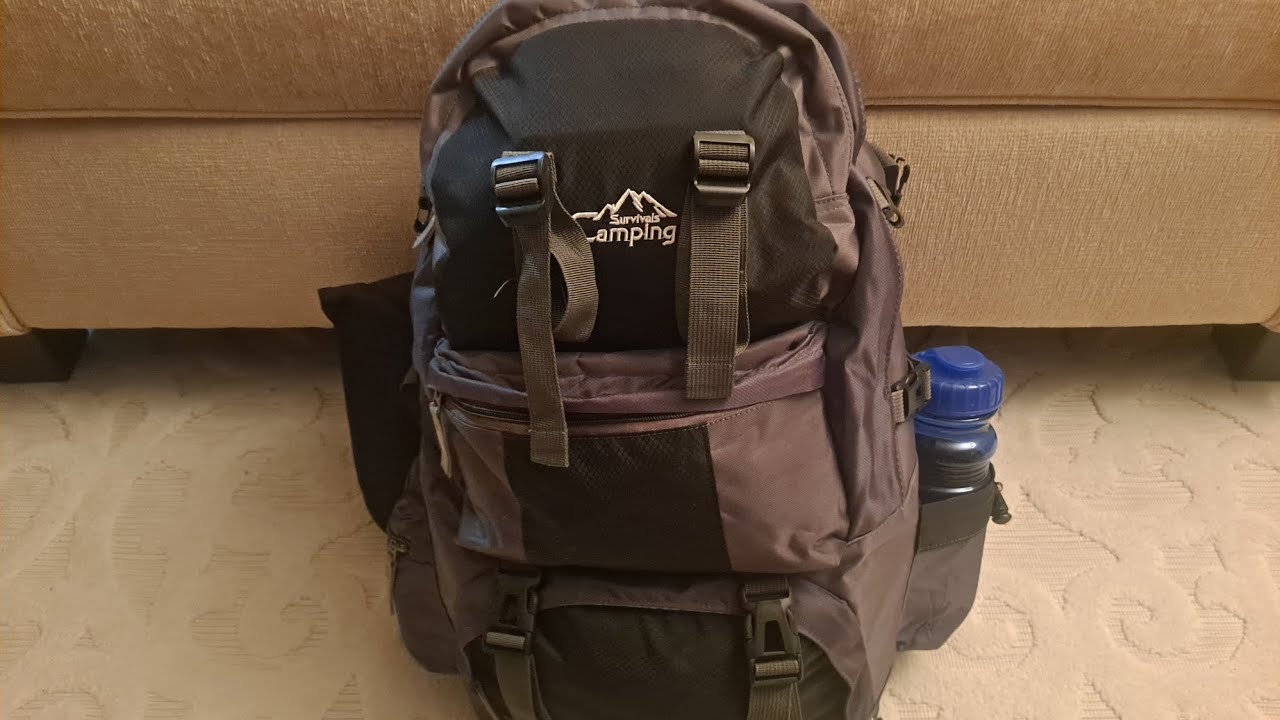Womens Preparedness
The Rise of Female Homesteading: How Women are Embracing Self-Sufficiency

Hello fellow ladies of the homesteading world! My name is Jade Tripp, and I am thrilled to see the rise of female homesteaders taking charge of their own self-sufficiency. In today’s world, it is more important than ever for women to be empowered and prepared for whatever may come our way.
Homesteading is not just about growing your own food or raising livestock, it is about taking control of your own destiny and being prepared for whatever life throws at you. Whether you live in the heart of a bustling city or out in the peaceful countryside, homesteading can provide you with the skills and mindset to be self-sufficient and resilient in any situation.
One of the key aspects of homesteading is being prepared for the unexpected. This can range from natural disasters like hurricanes or wildfires, to economic downturns or societal unrest. By learning how to grow your own food, raise animals, and make your own household items, you are taking control of your own future and ensuring that you and your loved ones are safe and secure.
Take for example, Sarah, a single mother of two living in a suburban neighborhood. After losing her job due to the pandemic, Sarah decided to embrace homesteading as a way to provide for her family. She started a small vegetable garden in her backyard, learned how to preserve food through canning and pickling, and even started raising chickens for fresh eggs. Now, Sarah and her children are thriving, even in the face of uncertainty.
Another example is Anna, a retiree living in a rural area. After her husband passed away, Anna found herself feeling isolated and vulnerable. She decided to start homesteading as a way to stay active and engaged with the world around her. She now tends to a large garden, raises goats for milk and cheese, and even built a small off-grid cabin for weekend getaways. Anna’s newfound sense of independence and self-sufficiency has brought her a newfound sense of purpose and fulfillment.
So, to all the women out there considering homesteading, I encourage you to take the leap and start your journey towards self-sufficiency. Even if you are just starting out with a small herb garden on your windowsill, every step towards self-reliance is a step in the right direction. Embrace the homesteading lifestyle, learn new skills, and connect with like-minded women who can support and guide you on your journey. Remember, you are capable, strong, and resilient. Happy homesteading, ladies!
Womens Preparedness
The Importance of Preparedness for Adolescent Girls: Building Resilience and Confidence

The Importance of Preparedness for Adolescent Girls: Building Resilience and Confidence
Hello, beautiful souls! I’m Jade Tripp, and today we’re diving into an essential topic that resonates deeply with me: the importance of preparedness for adolescent girls. Becoming empowered through self-defense, safety awareness, and general preparedness can significantly impact a young woman’s confidence, resilience, and overall well-being.
Why Preparedness Matters
Adolescence is a critical period of development filled with new experiences, challenges, and sometimes, unexpected situations. Whether it’s exploring new social dynamics or venturing into unfamiliar environments, having the skills and mindset to handle these experiences is invaluable. Preparedness is not just about averting danger; it’s about equipping our girls with the tools they need to feel confident in their abilities to handle various situations.
Building Resilience
Resilience is the ability to bounce back from adversity. For adolescent girls, creating a resilient mindset can pave the way for future successes and personal endeavors. Preparedness promotes resilience by teaching them problem-solving skills, decision-making abilities, and stress management techniques.
Real-life Example: Malala Yousafzai
Take the inspiring example of Malala Yousafzai, who, at just 15 years old, stood up against the Taliban in Pakistan to advocate for girls’ education. Her preparation came from her fierce commitment to her beliefs and the knowledge that she could, and would, defend her right to an education. Even after facing extreme adversity, her fierce resilience has illuminated a path for countless young women throughout the world.
Self-Defense Skills
Teaching self-defense to adolescent girls is crucial. It’s not just about physical prowess; it’s about cultivating an awareness of one’s surroundings and the confidence to act.
Practical Steps to Develop Self-Defense Skills:
-
Enroll in Classes: Many communities offer self-defense classes tailored for younger individuals. Look for programs that teach techniques like Krav Maga, Brazilian Jiu-Jitsu, or even basic martial arts. Find a local class through organizations like the Women’s Self-Defense Institute.
-
Practice Situational Awareness: Teach girls to be aware of their surroundings. Simple practices like noting exits when entering a building or being mindful of who’s around them can make a significant difference.
- Identify Support Systems: Encourage girls to find and establish relationships with trustworthy adults in their lives. Knowing who to turn to in a crisis can bolster their confidence.
Building Confidence
Preparedness fosters confidence. When girls know they can protect themselves and handle unexpected situations, they naturally develop a stronger sense of self. Confidence can spill into various aspects of their lives, from social interactions to academic pursuits.
Real-Life Example: Amanda Todd
Amanda Todd’s story reminds us of the importance of digital awareness. After facing bullying and harassment online, Amanda showcased resilience through her YouTube video, raising awareness about the harsh realities of cyberbullying. Her tragic story serves as a reminder to equip our girls with the knowledge and skills to stand against such adversity.
The Essential Tools for Preparedness
-
Emergency Plans: Encourage girls to have a plan in place for various scenarios—whether it’s a minor situation like losing a phone or a serious one like an emergency during travel. Using tools like the FEMA app can help prepare them for natural disasters with real-time alerts and emergency kits.
-
Talk Programming and Social Media Safety: Incorporate discussions about social media engagement, understanding privacy settings, and recognizing online threats. Groups like the Cyberbullying Research Center provide resources to educate parents and teens about online presence and boundaries.
- Fostering Communication: Establish open lines of communication where girls can express their concerns or experiences without judgment. Supporting them in navigating relationships, whether with friends or potential partners, is essential for their emotional health.
Building a Supportive Community
Creating a supportive community is fundamental to fostering preparedness. Encourage girls to connect with peers who share their interests in personal safety, activism, or physical fitness. Building friendships around shared goals will empower them to share resources and skills.
Conclusion
Preparation might seem like an intimidating concept at first, but it really is about building a toolkit of practical skills and knowledge that can transform how adolescent girls approach life’s challenges. By promoting resilience, confidence, and self-defense skills, we are equipping them not just to survive but to thrive.
Remember, ladies: Preparedness is a journey, not a destination. Let’s nurture the next generation of empowered women together, so they can face the world with courage, resilience, and confidence. So go ahead, embrace the power of preparedness—because knowledge is your best ally!
Stay strong, stay prepared! ✨
With warmth,
Jade Tripp
Womens Preparedness
BUG OUT BAG FOR WOMEN | EVACUATION | PREPAREDNESS | LONG TERM GOT TO GO BAG

Thank you for watching my video. Please Subscribe Like Share to my channel https://youtu.be/zuABiko5y40 …
source
Womens Preparedness
How Multitasking Can Help or Hinder Emergency Response

Hello, fabulous women! It’s Jade Tripp here, and today we’re diving into a topic that can undoubtedly make a difference in how we respond to emergencies—multitasking. As women, we often pride ourselves on our ability to juggle various responsibilities simultaneously. Whether it’s managing work deadlines while planning our kids’ schedules or organizing a community event, multitasking has become second nature for us. However, when it comes to emergency situations, this skill can either empower us or lead us astray.
The Double-Edged Sword of Multitasking
When you think of multitasking, you might think of being efficient and productive. Yet, in high-stress situations, our brains can become overloaded, making it challenging to focus on the most critical tasks. Let’s break this down into both the advantages and drawbacks of multitasking when it truly matters.
The Benefits of Multitasking
-
Quick Decision Making: In emergencies, time is of the essence. Girls, how many of us have been in a situation where we had to make rapid decisions? For example, consider the case of a woman named Sarah, who was at a grocery store when a sudden fire broke out. While most people stood frozen, she quickly assessed her surroundings, located her children, and ushered them towards the exit all while alerting others nearby. Her ability to multitask saw her through a critical moment.
-
Resourceful Thinking: Multitasking enables us to draw from various skills simultaneously. Just think about preparing your family for a camping trip—setting up tents, cooking, and keeping the kids entertained can require juggling many things. In emergencies, such as a natural disaster where you might need to help a neighbor while tending to your family, this resourcefulness can save lives.
- Enhanced Situational Awareness: Managing multiple tasks can heighten awareness. For instance, during an earthquake like the one that hit Napa Valley in 2014, women like me used multitasking to secure themselves, help others, and even account for pets. Training ourselves to multitask within safe environments can prepare us for real emergencies.
The Downsides of Multitasking
Despite its benefits, multitasking can also hinder our response in critical moments. Here are a few reasons why:
-
Cognitive Overload: When we attempt to do too much at once, our brains can become overwhelmed. This can lead to mistakes. For example, let’s take the story of Lily, who was making dinner while chatting on the phone when she heard a loud crash in her living room. In the chaotic rush to assess the situation, she accidentally knocked over a pot of hot water, causing a burn. Focusing on one task at a time—like ensuring her children were safe first—might have prevented the injury.
-
Compromised Focus: Our cognitive resources are finite, especially under stress. During emergencies, people sometimes lose focus and miss critical cues. Remember the freezing of the bystanders during an incident at a public park? Their attention was split, and the moments of hesitation that followed could have led to different outcomes had they acted decisively.
- Neglected Priorities: It can be easy to get caught up in less crucial tasks while ignoring what truly matters. In emergencies, we need to prioritize our safety above all. The tragic case of a mother in a bullying incident comes to mind—she was so busy filming the altercation on her phone she neglected to intervene, resulting in harmful consequences.
Finding the Right Balance
So how can we strike a balance in our multitasking abilities while remaining effective in emergency situations? Here are some practical tips that can make a world of difference:
-
Prioritize Tasks: Always remember: safety first. In case of emergencies, assess the situation quickly. Identify the immediate threats and act accordingly. Teach yourself to prioritize by practicing scenarios that might arise.
-
Practice, Practice, Practice: The more training we have, the more instinctive our responses will become. Participate in personal safety classes or emergency drills. Organizations like the American Red Cross offer courses in first aid, CPR, and emergency preparedness that can help you react faster and more efficiently.
-
Limit Distractions: When you hear an alarm or a loud noise, resist the urge to multitask. Focus on what’s essential—your well-being and that of others. Think of Jessica, a teacher who, during a lockdown drill, removed distractions and kept her students focused on safety—her calmness in prioritizing over multitasking led to reduced anxiety.
- Mindfulness Techniques: Engage in mindfulness practices to improve focus. Breathing exercises and grounding techniques can preserve your mental strength during tense moments.
Final Thoughts
Ladies, multitasking is an incredible skill we have honed, and while it can lead to efficiently managing everyday life, we must adapt our approach in emergencies. By understanding its strengths and limitations, we can cultivate a more effective and empathetic response to critical situations.
Let’s equip ourselves with the mindset and the knowledge to act in times of crisis. Remember, preparation is key, and embracing our roles as powerful, multitasking women doesn’t just mean juggling everyday tasks—it means being ready to protect ourselves and our communities, no matter the situation!
Stay strong and stay safe! 💪🌟
-

 Womens Self Defense11 months ago
Womens Self Defense11 months agoNew Legislation Empowers Women to Defend Themselves
-

 Self Defense News1 year ago
Self Defense News1 year agoShe was convicted of killing her abusive boyfriend. Now a Maple Grove woman is home awaiting a new trial.
-

 Self Defense News1 year ago
Self Defense News1 year agoSelf-Defense for All: The new Gracie Jiu-Jitsu Pasadena is for everyone | Online Features
-

 Womens Self Defense1 year ago
Womens Self Defense1 year agoTop 5 Self-Defense Techniques Every Woman Should Know
-

 Womens Self Defense7 months ago
Womens Self Defense7 months agoUnderstanding State-by-State Variation in Self Defense Laws
-

 Womens Fitness1 year ago
Womens Fitness1 year agoXtreme Bodyweight HIIT (Lots of Jumping!) | Joanna Soh (Fio Series)
-

 Womens Preparedness1 year ago
Womens Preparedness1 year ago10 essential skills for surviving in the great outdoors
-

 Womens Preparedness1 year ago
Womens Preparedness1 year agoEmpower Yourself: A Guide to Female Survival Planning



